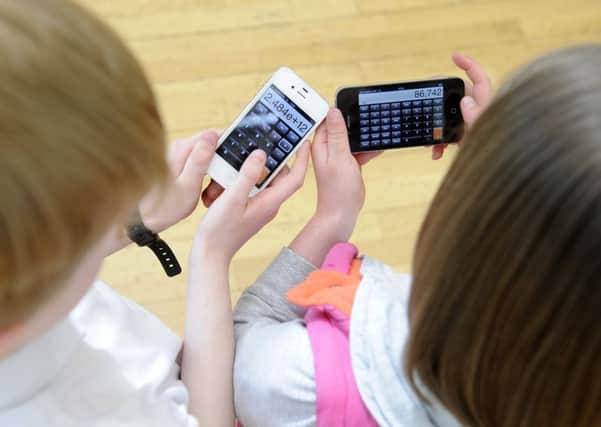Parents should set example on social media use – Catherine Calderwood


Access to a fast reliable internet connection is a necessity in life, as those of you, like me, with teenagers will be all too aware. We need it for work, for entertainment, for education and for the provision of healthcare.
The NHS in Scotland is providing more healthcare remotely, and I would like to see this in urban areas as well as more rural. ‘Attend Anywhere’ is available in NHS Highland and, due to its success, is being rolled out elsewhere. This enables a hospital appointment, be it for orthopaedics, diabetes or maternity, to take place in the local GP surgery with a nurse or midwife providing the hands-on care while the consultant ‘consults’ from their clinic. This saves travel, which may be uncomfortable and difficult and, of course, unnecessary when all that may be needed is follow-up advice and reassurance.
Advertisement
Hide AdAdvertisement
Hide AdSo is the internet universally a good presence in our lives? We’ve heard about it being toxic, addictive, a place for bullying, grooming, predatory behaviour, sharing of intimate images and self-harm. These are not things we associate with universal good, in particular when it affects children and young people, many too young to know what they are watching or to give consent. Research has shown that almost three quarters of 10-12 year olds have a social media account.
Anxiety and depression rates are rising in teenage girls. An association between prolonged screen time and symptoms of depression and anxiety in young people continues to be found, but no direct causation has yet been established. There is the pressure to live your ‘Life in Likes’, resulting in feeling the need to look good and to be having ‘the best’ time.
It is not just the time which children and young people are spending online; it is the content they are viewing and the persuasive techniques used by companies to ensure their users are kept continually engaged, pushing adverts and inappropriate content via sophisticated algorithms. It is also what they are not doing when they are spending time online. The displacement of other activities; sleep, physical activity, talking to friends.
Today the four UK Chief Medical Officers have released a commentary on the available research on screen-based activities and children and young people’s mental health and importantly also issued advice for parents. In Scotland, we will follow up with guidance produced with the help of children and young people on the healthy use of social media and screen time. We recommend that internet safety and online harms are taught in schools and call on industry to collaborate in safeguarding children and young people using their sites with a voluntary code of conduct while we await legislation and to collect data to enable research.
The Chief Medical Officers hope that parents will lead by example, put their own phones away at mealtimes, pay attention to their children and perhaps make a pact with them about the amount of time they spend on their screens and encourage other activities.
Sleep is very important so we recommend phones are left outside the bedroom at bedtime. This will help with learning the next day. Keep moving around and take a break after a couple of hours. Talk to children about sharing sensibly online and look out for changes in behaviour or distress which may mean your child is being bullied or seeing material they are not comfortable with. Maybe some old-fashioned face-to-face conversation and eating together will help too, even if monosyllabic at first. I’m talking to myself here too!
